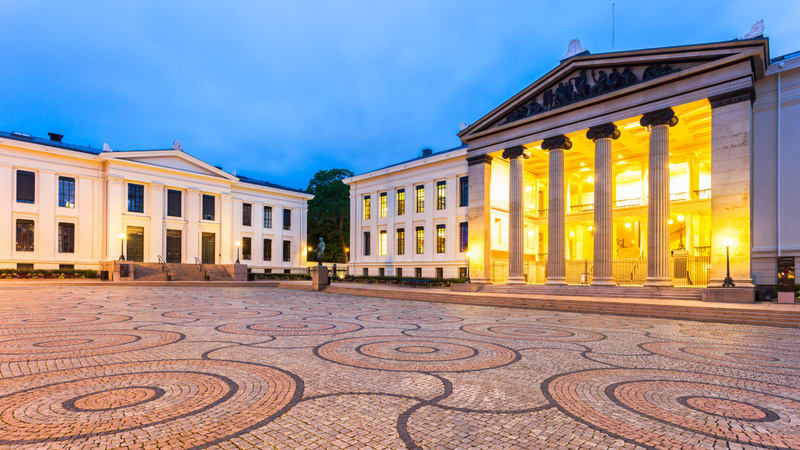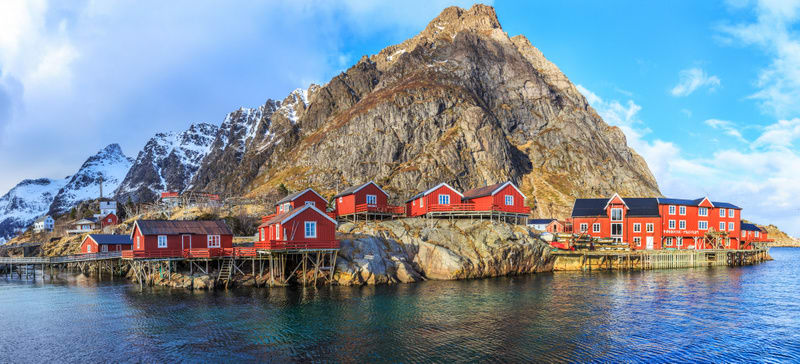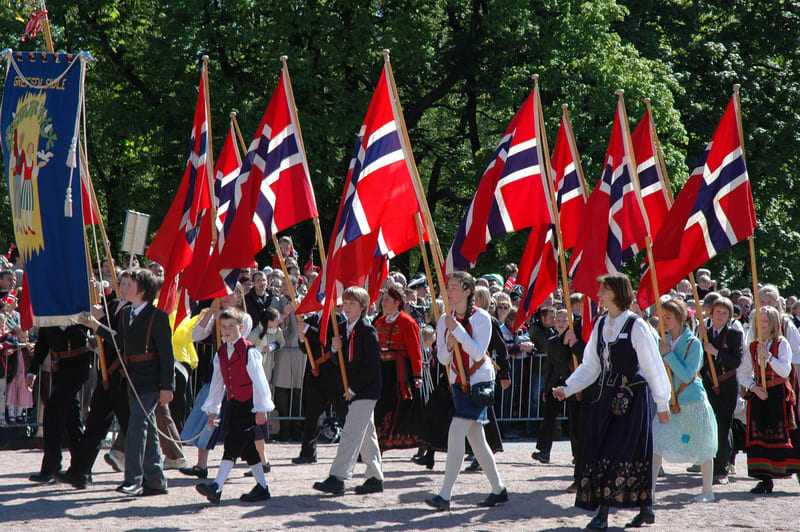Why You Should Study In Norway
There are too many reasons to list why you should study in Norway. Where should we start? Is it because it’s one of the happiest places on the planet? Or that you can take all of your courses in English? Or the Northern lights? Polar bears? Perhaps the fact that you can study at some of the world’s finest research universities and not pay a penny? Let’s take a closer look at why you should study in Norway.
- Student Tips

The World Happiness Report, just released on March 20, World Happiness Day, has some great news for Norway: it’s the happiest place in the world. Norway, along with its fellow Scandinavian countries scores high marks on caring, freedom, generosity, honesty, health, income, and good governance. The World Happiness Report explains that happiness is social and personal—and implies a sense of freedom, specifically from corruption.
What does this mean for you?
Norway is a great place to study. A great place to live. A great place to be.
Besides being the happiest place on the planet in 2017, let’s consider five reasons why you should study in Norway.

1. Happy International Students
It makes sense that the happiest place on earth has happy international students. From top-notch universities to metropolitan city life, Norway has a strong appeal to international students. In 2016, it ranked #1 in international student satisfaction. Why are students so happy? Courses in English (see #5). Variety of courses, programs, and fields of study. Friendly locals. Vibrant art scenes. Rich music scenes. Phenomenal beauty (see #3). Local culture and cuisine. Ease of transportation. Low crime rate.
Did we mention that the cheese slicer was invented here in 1925? While not directly related to happy international students, having a good cheese slicer on hand can certainly improve your day.
Not only are international students happy, but local Norwegians are, too. It helps that international students can share their experiences with local students who are just as happy—and delighted—to taste, feel, and experience all that Norway can offer.

2. Tuition-free Universities
It doesn’t hurt that Norway’s public universities are tuition-free. While certain programs at these universities might charge fees, most general courses of study do not. Private universities, of course, charge. Looking for tuition-free universities in Norway? Check out the University College of Southeast Norway and Nord University.
If this is all sounding too good to be true, it’s not – but it does come at a price. For all its perks, Norway is an expensive place to live—rent, groceries, restaurants, train tickets, alcohol, gas, hotels, books, supplies—all pricey. Commodities, like gas and beer, are also heavily taxed.
And the winter—while beautiful—is cold and dark. Norway’s island municipality of Svalbard even boasts polar bears! Mainland Norway may not be as harsh as Svalbard in the Arctic Ocean, but with parts of the country, including Tromsø – home of the Arctic University of Norway – within the Arctic Circle, you should be prepared for long, dark winter nights. Still, the endless night doesn’t stop Norwegians from having fun and enjoying nature. (see #3).

3. Breathtaking Landscape
Norway is stunning. The midnight sun. The Northern lights. Jagged coastline. Deep fjords. Dense forests. Snow-capped mountains. Arctic foxes. Kittiwakes. Polar bears. Norway experiences extremes in all four seasons, resulting in extreme conditions… and extreme splendor. While you’re studying here, it’s worth the investment of a decent camera… and maybe a pair of Nordic skis.

4. Social System
Hailed as one of the best in the world, Norway’s social system reaches every Norwegian... and even some transplants. It offers welfare services for all; education, public healthcare, unemployment support, parental leave, and childcare. While these systems are not immediate for new residents and require some time and effort, the rewards can—and will—pay off. Keep in mind: your taxes and cost of living are high for a reason.

5. English
Most everyone in Norway speaks English, especially at the universities. This applies not just to Norway, but to Scandinavia in general. English is essential in Norway—it carries cultural currency. English and the Scandinavian languages come from similar roots, so it’s not a far cry to learn English if you already speak Norwegian. Norwegian syntax and English syntax are also similar in their ‘subject-verb-object’ constructions. Learning English is also a priority for Norwegian primary school students.
If you’re not convinced yet, you should be. Study in one of the happiest, most beautiful, friendliest, interesting, and academically rigorous places in the world. You will certainly not regret it.
Read related articles

Four Reasons to Study Off The Beaten Path in The US

Six Reasons Why You May Want To Get Your Degree Abroad
